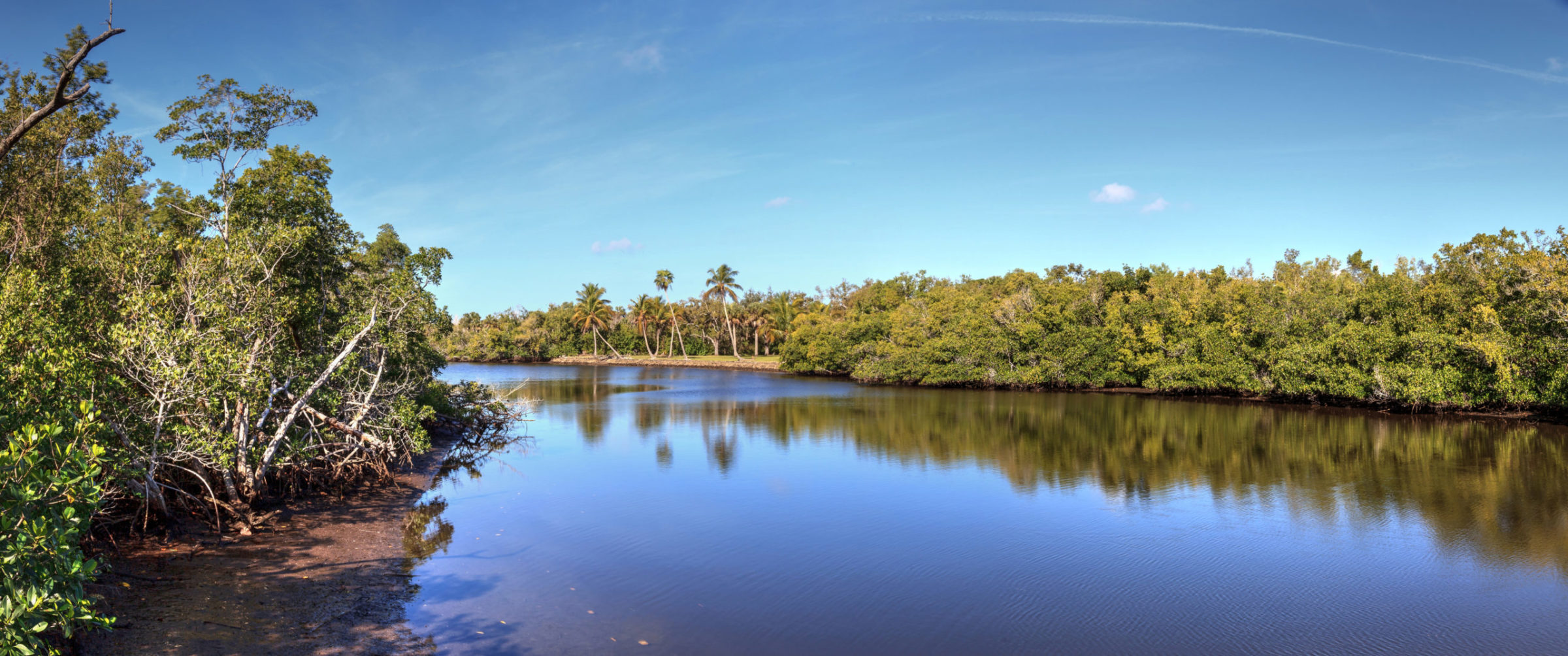Swamp Rights Constitutional Amendment Pushed in Florida
Originally published at National Review- Categories
- Nature and Conservation
This is serious. Signatures are being gathered in Florida to qualify a “rights of waterways” constitutional amendment for Florida. The proposed amendment is a form of “nature rights” and is being pushed by (among others) the Florida Rights of Nature Network, the slogan for which is, “Nature is not just an object. It is alive. It has as much right to live as we do.”
The idea here is that “waterways” — which can be anything from swamps to underground rivers, to oceans, to brackish ponds — have the right to equal consideration in determining whether they can be harnessed or altered for human use and benefit. The proposed amendment pretends it is just about clean water, but it involves much more than that. From the “Florida Clean Water Act” proposed amendment (my emphasis):
(a) Every Floridian has a right to clean water.
(b) The Everglades, Florida Springs, the Indian River Lagoon, the St. Johns River, the Caloosahatchee River, the Suwanee River, the Santa Fe River, Apalachicola Bay, Biscayne Bay, Tampa Bay, Pensacola Bay and all other Florida waters have a right to clean water, and that right shall include the rights of those waters to exist, flow, be free from pollution, and maintain a healthy ecosystem.
How would these waterways — which are geological features, after all — enforce their putative rights? Why, anyone who opposed a project or use of the waters could sue!
(c) Any resident, nongovernmental organization, or government entity of this state shall have standing to enforce and defend the rights secured by this section in any court possessing proper jurisdiction.
(d) Waters may enforce and defend the rights secured by this Section through an action brought by any resident, nongovernmental organization, or government entity of this state pursuant to (c), in any court possessing proper jurisdiction, in the name of the waters as the real party in interest.
Interfere with the waterways, and you could pay — big time!
Damages awarded under this section shall be measured by the cost of fully restoring the waters to their pre-damaged state, and shall be paid to an appropriate governmental or nongovernmental entity, as designated by the court, to be used exclusively for the full restoration of the waters.
And to state the obvious, waterways would have rights but no duties:
(e) The rights secured in this section shall not be interpreted to confer liabilities, duties, obligations, or responsibilities on waters.
The term “clean water” is defined expansively to the point it could include almost anything, as are the terms “water” and “flow:”
(1) “Clean Water” shall mean waters free of the non-natural presence of any one or more substances, contaminants, or pollutants in quantities which are or may be potentially harmful or injurious to human health or welfare, animals, fish, plant life, and water quality or which may unreasonably interfere with the enjoyment of life or property, including outdoors recreation.
(2) “Flow” shall mean the steady and continuous movement of waters, the diminishment of which would be significantly harmful to the water resources or ecology of a particular area.
(3) “Waters” shall mean all rivers, lakes, streams, springs, impoundments, wetlands, and all other waters or
bodies of water, including fresh, brackish, saline, tidal, surface, or underground waters, as well as all coastal
waters within the jurisdiction of the state
So, if a proposed use of waterways would interfere with the natural lives of clams, it could be stopped. If a pipelines interfered with the natural flow of underground water, it could be stopped. If a dike was proposed to stop flooding, it could be stopped. It seems to me that this could easily also include interfering with shipping and recreational boating as ships and boats can cause pollution and impact local wildlife, while docking facilities can interfere with natural water flow, cause pollution, or impact the ecosystem of the area.
Passage of this amendment — if it makes the ballot’s 900,000 petition signature threshold — would corrode human exceptionalism and destroy Florida’s now thriving economy by allowing the most radical environmentalists to thwart projects and water uses to which they object. I am not kidding. This amendment has the potential to bring Florida’s economy to its knees and destroy the quality of life for millions of Floridians.
What chance does it have of passage? Better than you might think. Proponents will have a lot of radical green money to sell it to unknowing voters as merely a benign clean water measure — when it is actually environmentalism at its most radical that would harm human thriving.
Moreover, I fear that opponents will not spend the resources and time needed to educate the public about how radical and potentially destructive the amendment would be for Florida.
That task should start immediately — with an ad campaign urging that Florida voters refuse to sign the petitions. And Governor DeSantis should bring the issue to a needed high profile by stating his opposition, as should Senators Marco Rubio and Rick Scott. The best way to assure that this measure passes is to not take it seriously. Because the proponents certainly do.
